BACK FROM THE BRINK
Rebuilding rhino populations in India
A SECOND CHANCE FOR RHINOS
How can this second chance for rhinos be a second chance for us all?
Targeted by poachers for their horns which fetch lucrative sums on the black market, rhino species around the globe are threatened with extinction. Yet the incredible comeback of the greater one-horned rhino populations in India from the brink of extinction offers hope that we can protect wildlife and their habitats and combat trafficking before it’s too late.
PARTNER SPOTLIGHT
International Rhino Foundation
A Woodland Park Zoo Conservation Partner
Woodland Park Zoo partners with the International Rhino Foundation, an organization founded in 1993 in response to the escalating crisis facing all five rhino species. The International Rhino Foundation’s efforts have led to a 17-fold increase in the global population of the greater one-horned rhino in just 30 years.
GOOD NEWS FOR RHINOS
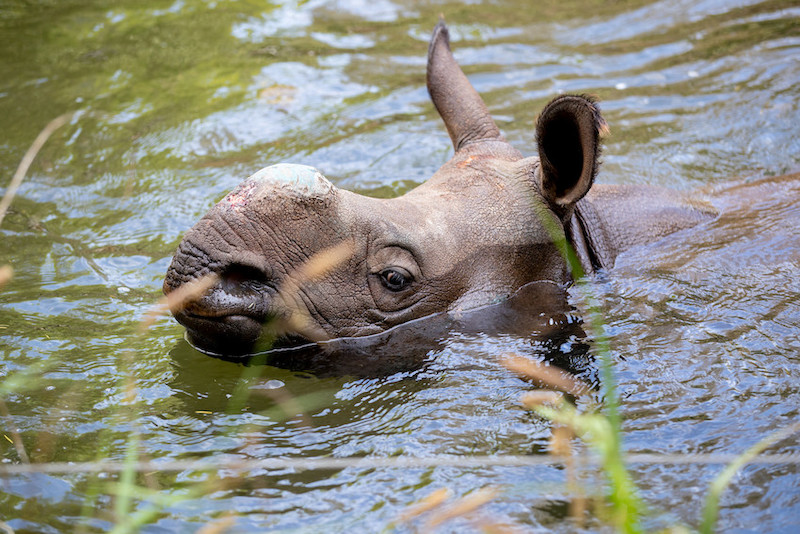
Recovering from the Brink
The population of greater one-horned rhinos was reduced to less than 200 a century ago from hunting and habitat loss. Thanks to strict protection, the total population is more than 3,550 today.
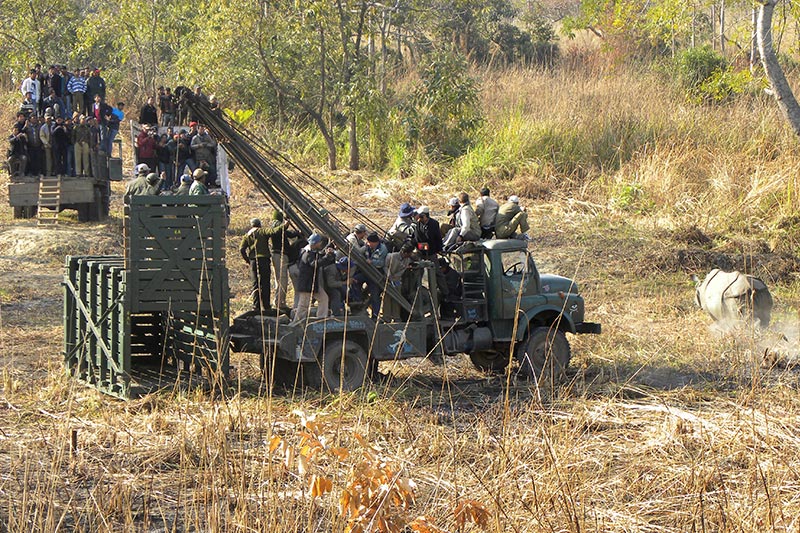
Expanding Populations
Roughly 70% of the entire greater one-horned rhino population is found in Kaziranga National Park in Assam, India. To help build up the global population, efforts are now being made to translocate rhinos to other parks that are now well-protected. Since April of 2008, 18 greater one-horned rhinos have been translocated to Assam’s Manas National Park. Thirteen calves have been born in the park since then, including one in October 2017. Two more rhinos are expected to be translocated to Manas National Park in 2019.
Photo courtesy of International Rhino Foundation
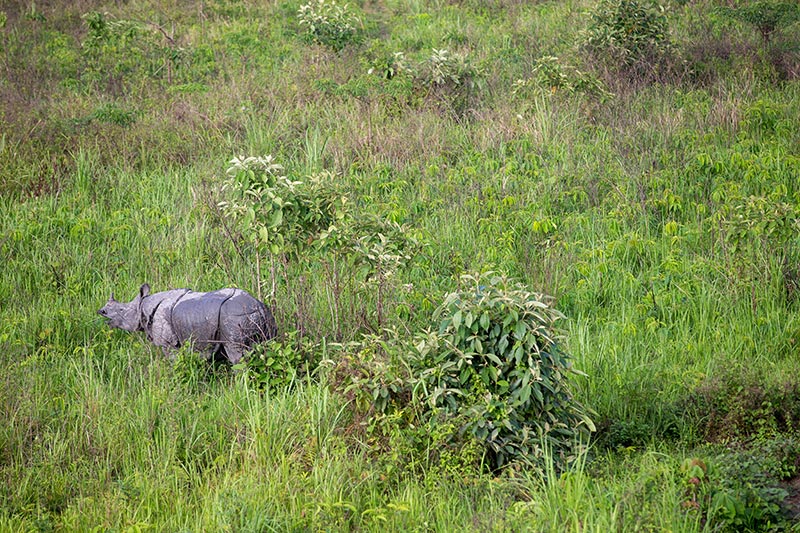
Promising a Future
As this new generation of rhinos takes hold in Manas, the local community is committed to a sustainable future together. Through education programs supported by International Rhino Foundation, the schoolkids of Manas make a daily oath for conservation, committing to protect their forests and wildlife.
WHAT YOU CAN DO
Stop Traffic Here in Washington
The illegal trafficking of animals is not a problem confined to Asia and Africa—it happens right here, too. You can help stop local illegal trade. Here are four ways to join us in #savingspecies:
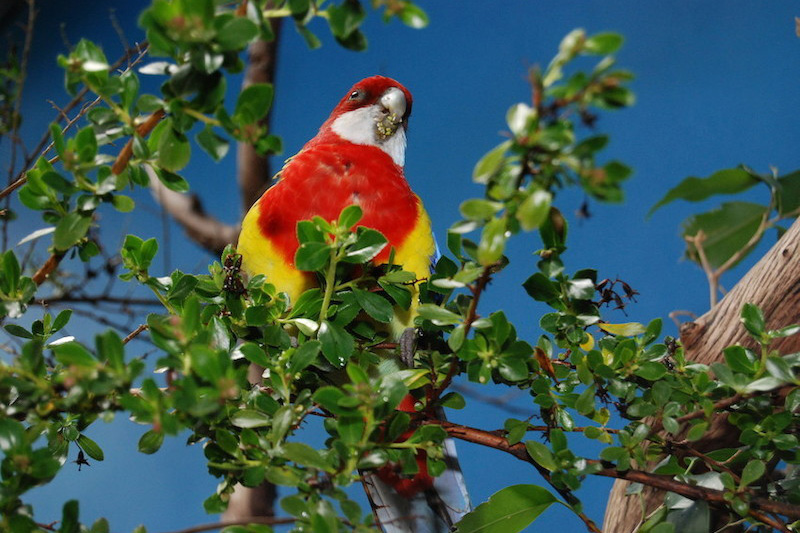
Be a Pet Protector
You have a big heart for animals and you share your home with your pets. Sadly, many animals are taken from the wild for the domestic pet trade, including endangered turtles, birds and fish that show up for sale, often online, by disreputable sources. Your promise to give your pets the best life can start before you ever take them home.
Know your pet's history. Adopt or purchase pets from reputable sources only. Research the laws to understand what animals can be legal pets in your area, and help spread the word to others so we can all make responsible choices.

Be a Fish Finder
You order omakase—chef’s selection—at any sushi restaurant ‘cause that’s how you roll. And you’re the one at Pike Place Market ignoring all that fish tossing because you’re busy just trying to actually buy the stuff. Your seafood choices are refined, but are they also responsible? Right here in Washington state, geoducks are unlawfully poached to feed international demand and sea cucumbers are being overharvested.
To find sustainable seafood choices wherever you live or travel to, get the free Seafood Watch Guide app or wallet-sized cheat sheet.
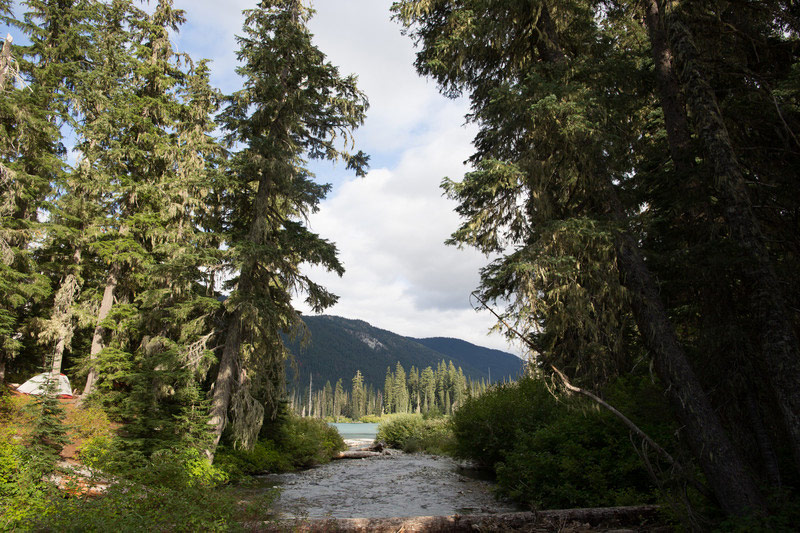
Be a Keen Reporter
You could sleep outside every night and never get tired of counting stars. With your love of the outdoors and your keen eye, you are just the kind of friend Washington state wildlife detectives need. Keep your eyes peeled for any signs of wildlife crime in Washington. From off-season hunting, to ivory and rhino horn in gift shops, your sightings can help Washington Department of Fish and Wildlife enforce law and stop poachers and traffickers.
Add the state Fish and Wildlife tip line to your phone contacts so you are always ready to report what you see: 1-877-933-9847. Or submit a tip online anytime.
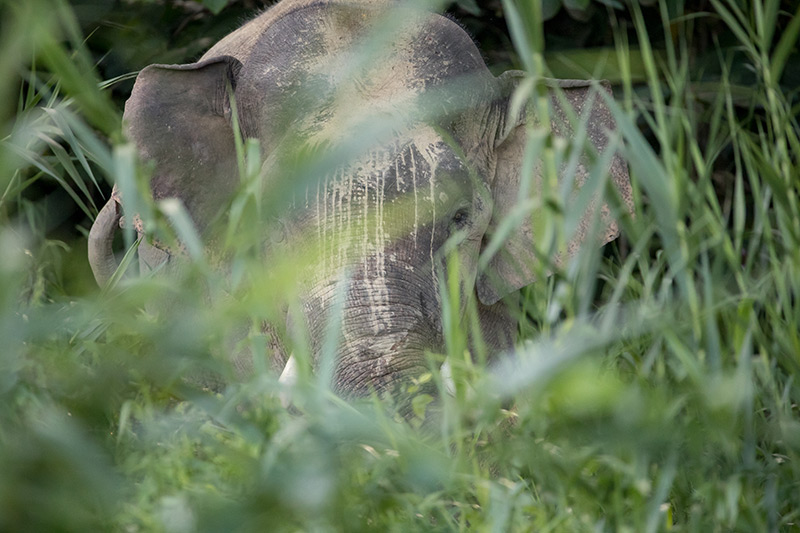
Be an Informed Traveler
For each new global adventure you add to your travel journal, you’re on the hunt for that perfect souvenir—the memento that keeps the memory fresh. But the informed traveler knows that many souvenirs are made from protected animals or plants, or may otherwise be illegal to export. Don't be an unwitting trafficker.
The Association of Zoos & Aquariums and the U.S. Wildlife Trafficking Alliance have created a traveler's guide to help you be informed and buy informed. Get your free copy online.
MORE WAYS TO HELP